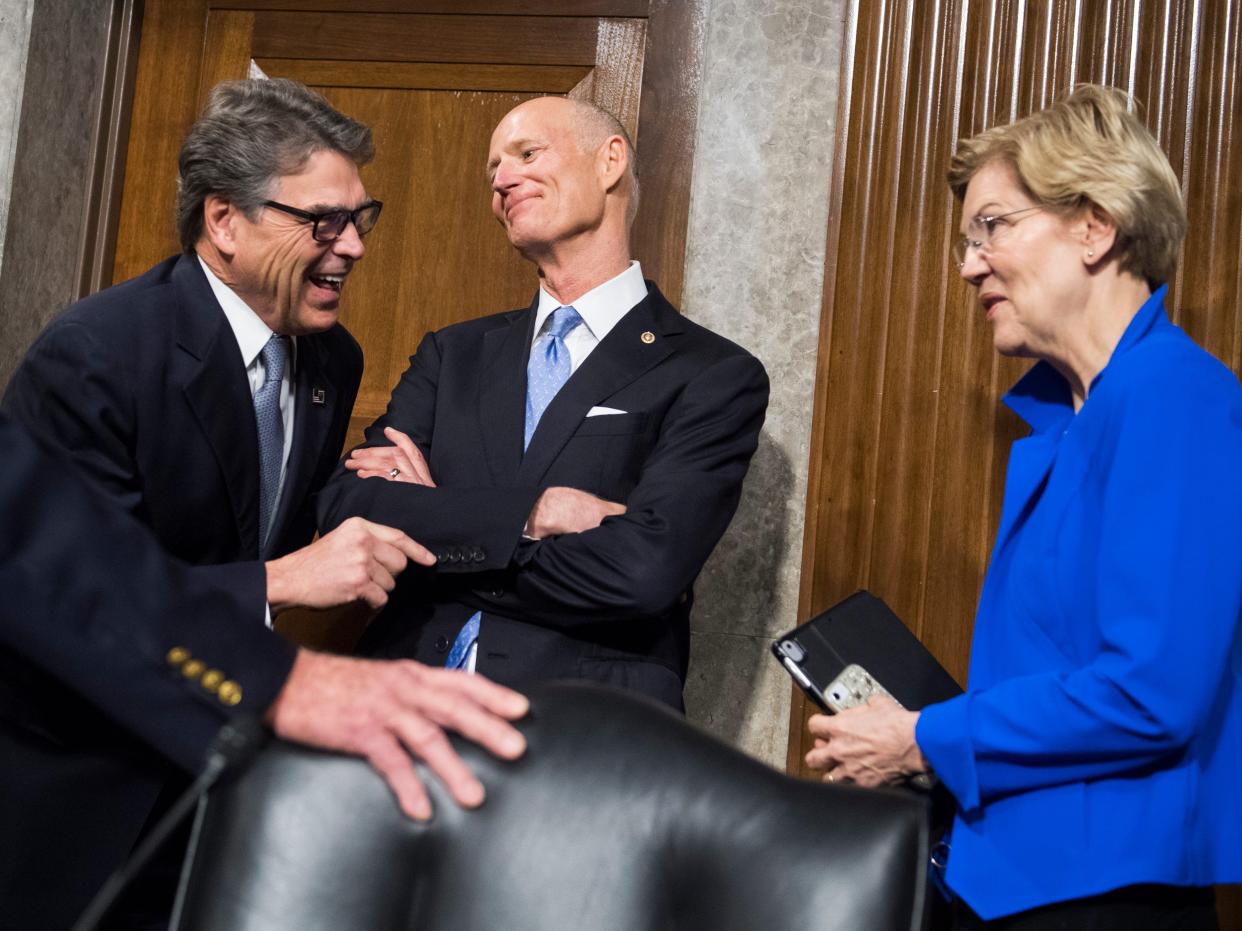A bipartisan pair of lawmakers just launched an effort to crack down on the Fed following Silicon Valley Bank's collapse

- Oops!Something went wrong.Please try again later.
- Oops!Something went wrong.Please try again later.
Sens. Rick Scott and Elizabeth are launching a bipartisan effort to crack down on the Federal Reserve.
The Republican and Democrat are joining forces to introduce new legislation for greater regulation.
Specifically, following SVB's collapse, they want the president and Senate to appoint an inspector general.
Following Silicon Valley Bank's collapse, neither major political party is happy with the Federal Reserve.
On Wednesday, conservative Sen. Rick Scott and progressive Sen. Elizabeth Warren introduced legislation to bolster oversight of the nation's central bank. Specifically, the bill would require that a presidentially-appointed and Senate-confirmed inspector general serve on the Fed's Board of Governors to ensure accountability following SVB and crypto-friendly Signature Bank's collapse. Those failures and regulators' subsequent bailout of depositors shook the banking industry.
This bill is a piece of legislation that Warren introduced with Republican Sen. Pat Toomey in December called the Financial Regulators Transparency Act, which would strengthen accountability for the Fed and make the Inspector General a presidential appointee.
"After the Federal Reserve's failure to properly identify and prevent the shocking failures of Silicon Valley Bank and Signature Bank, it's clear we can't wait any longer for big change at the Fed," Scott said in a statement. "It's outrageous that the Federal Reserve, the world's largest and most powerful central bank, does not have a truly independent inspector general to investigate it – an independent authority to fight for the transparency and accountability our citizens need."
The Federal Reserve currently has an inspector general, but he was appointed by the Fed's Board of Governors rather than lawmakers.
"Consumers and American families must not bear the brunt of the failures of gross mismanagement and greed at their banks or the incompetence and misdeeds of the government regulators who are there to protect them," Scott added.
On Monday, Scott wrote a letter to Fed Chair Jerome Powell asking for information on who is being held accountable for SVB's failure, and why the Fed did not act sooner to prevent such an outcome. "For too long, the Federal Reserve has used its claim of independence to thwart Congress and the American people while being unable or unwilling to properly regulate and supervise the large financial institutions under its care," he said in the letter.
It's the second significant bipartisan push for greater regulations following SVB's abrupt failure and consequent bailout. Senator Angus King, an independent from Maine who voted for loosening regulations in 2018, joined a letter calling for greater oversight of banks holding $100 billion to $200 billion in assets.
The Fed has become a popular target for more centrist politicians, even as lawmakers like Warren and Bernie Sanders call for rolling back legislation that weakened bank regulations which could've potentially caught some of the issues plaguing SVB. Sen. Joe Manchin, a conservative Democrat who voted to loosen regulations in 2018, previously told Insider that the Fed "could and should have done more."
"When the industries that propped up these banks were publicly flailing, alarm bells should have rung at the Fed and additional oversight should have been performed," Manchin said. "No law prevented the Fed from acting."
The Fed is announcing its next move in fighting inflation on Wednesday — either another interest rate hike or a pause — and Warren has been especially critical of what Powell might do following the SVB debacle. She has repeatedly stressed that continuing to hike interest rates could cost millions of Americans their jobs and trigger a recession, and she directly blamed Powell for his role in SVB.
"He's failing in both jobs, both as the oversight manager of these big banks, which is his job, and also what he's doing with inflation," Warren said on Sunday.
Warren has blamed the 2018 rollbacks for SVB's failure, and she introduced legislation with Rep. Katie Porter last week to rescind that law, as well.
Read the original article on Business Insider

